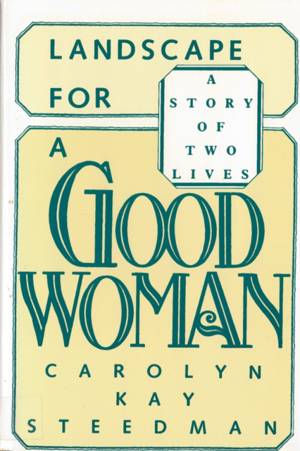
- Retrait gratuit dans votre magasin Club
- 7.000.000 titres dans notre catalogue
- Payer en toute sécurité
- Toujours un magasin près de chez vous
- Retrait gratuit dans votre magasin Club
- 7.000.0000 titres dans notre catalogue
- Payer en toute sécurité
- Toujours un magasin près de chez vous
Description
This book is about lives lived out on the borderlands, lives for which the central interpretative devices of the culture don't quite work. It has a childhood at its centre - my childhood, a personal past - and it is about the disruption of that fifties childhood by the one my mother had lived out before me, and the stories she told about it.'
Intricate and inspiring, this unusual book uses autobiographical elements to depict a mother and her daughter and two working-class childhoods (Burnley in the 1920s, South London in the 1950s) and to find a place for their stories in history and politics, in psychoanalysis and feminism.
'Provocative and quite dazzling in its ambitions. . . Beautifully written, intellectually compelling'.' Judith Walkowitz
'Carolyn Steedman's 1950s South London childhood was shaped by her mother's longing: "What she actually wanted were real things, real entities, things she materially lacked, things that a culture and a social system withheld from her... When the world didn't deliver the goods, she held the world to blame." When Carolyn Steedman grows up and begins to look for reflections of her and her mother's lives in history, theory, and literature, she finds that "the tradition of cultural criticism that has employed working-class lives, and their rare expression in literature, has made solid and concrete the absence of psychological individuality - of subjectivity." Through an in-depth comparison of personal experience and prevailing political and social science theory on the psychology and attitudes of working-class people, Landscape for a Good Woman challenges an intellectual tradition that denies "its subjects a particular story, a personal history, except when that story illustrates a general thesis." In this poignantly written and thoroughly researched work, the common theoretical conclusion that the survival struggles of working-class people precludes the time necessary for more genteel "elaboration of relationships" is shot full of delightfully life-affirming holes.' ---From 500 Great Books by Women; review by Jesse Larsen.
Spécifications
Parties prenantes
- Auteur(s) :
- Editeur:
Contenu
- Nombre de pages :
- 176
- Langue:
- Anglais
Caractéristiques
- EAN:
- 9780813512587
- Date de parution :
- 01-10-87
- Format:
- Livre broché
- Format numérique:
- Trade paperback (VS)
- Dimensions :
- 131 mm x 196 mm
- Poids :
- 213 g

Les avis
Nous publions uniquement les avis qui respectent les conditions requises. Consultez nos conditions pour les avis.






